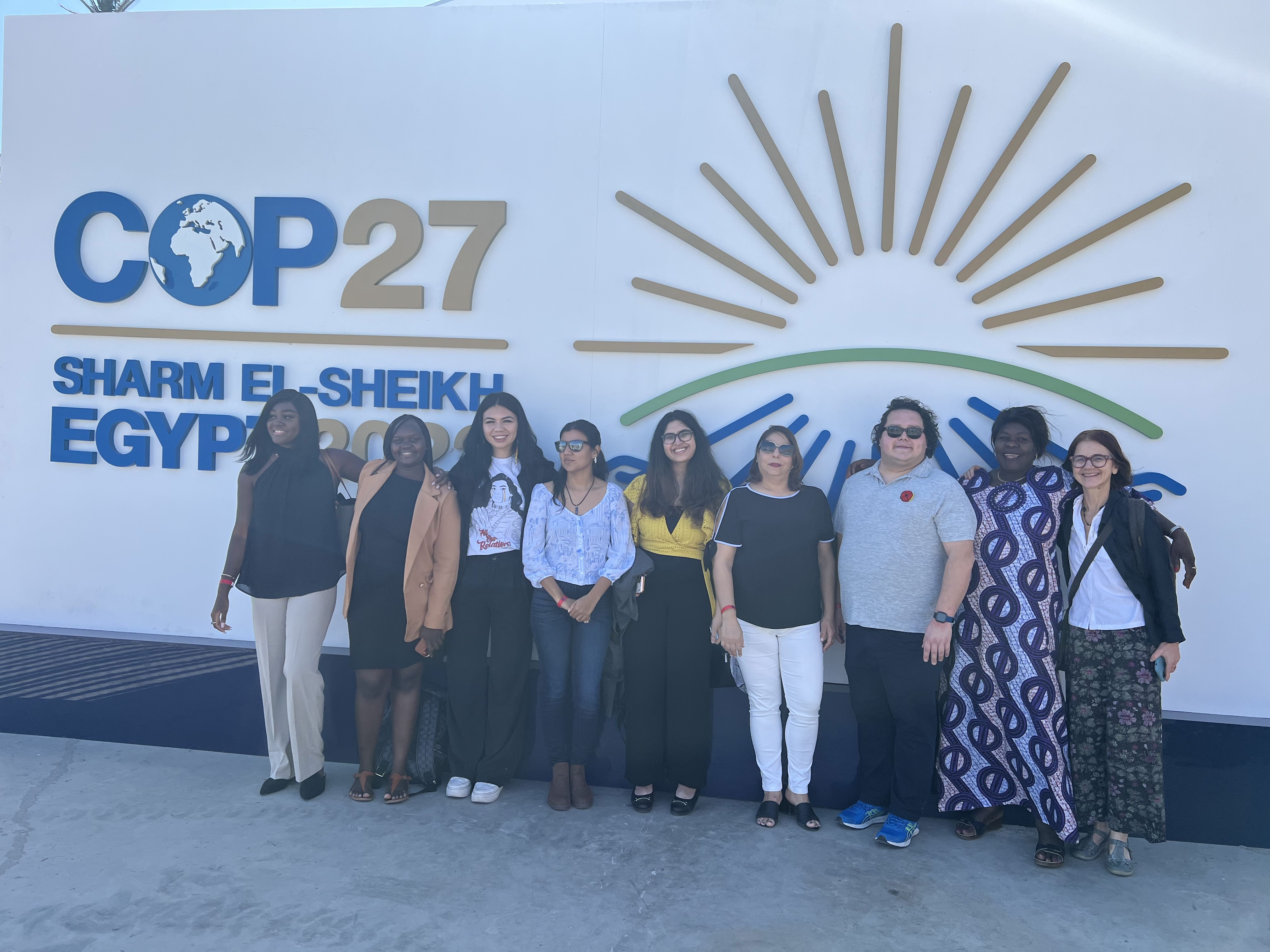Clifford Mushquash Fosters Hope and Healing
Thursday, March 16, 2023 /
A few months ago, Clifford Mushquash was on the edge of Red Sea in the Egyptian city of Sharm el-Sheikh.
He was attending the United Nations’ COP 27 Climate Change Conference as a member of the delegation sent by KAIROS (a Canadian ecumenical organization that supports ecological justice and human rights). Clifford—a Master of Public Health student specializing in Indigenous and Northern Health and a member of Pays Plat First Nation from Sioux Lookout, Ontario—says that COP 27 gave him a different way to look at health issues.
“It was a phenomenal experience that will influence the work I do at the community level for a very long time to come.
The talks and sessions I went to were so fascinating, including a water session in the Canadian pavilion led by Indigenous women. I was also able to sit in on some of the climate negotiations.”

Pictured right: KAIROS For the Love of Creation delegates representing the Democratic Republic of Congo, South Sudan, Colombia, Kuwait, Palestine, and Canada, arrive at COP27. “I was pinching myself when I found out that I’d been selected to go to because I’m new to climate justice conversations,” Clifford says.
KAIROS chose Clifford because he’s certified to lead their Blanket Exercise, an initiative KAIROS developed to encourage truth and reconciliation between Indigenous and non-Indigenous people. Clifford describes the Blanket Exercise as a participatory workshop that explores the history of Turtle Island, an area that extends from the Arctic to Mexico.
Pictured left: Clifford (in orange shirt) leads a sharing circle following the KAIROS Blanket Exercise at Naama Bay, Sharm el-Sheikh, Egypt.
“It’s a story of loss, violence, and exploitation as well as a story of resilience and strength that’s presented in a non-judgmental, objective way,” Clifford says. “Participants are put into the place of the people of Turtle Island and blankets are used to represent the land. Every exercise ends with a sharing circle discussing what we as individuals can do to advance reconciliation.”
Clifford became a facilitator in 2018 and says that it’s made him better able to understand his family and his clients.
His concern for others emerged early—Clifford was an active member of many youth and community groups. As an adult, he’s volunteered with organizations including the Rotary Club, the Canadian Cancer society, the Ontario HIV Network, the Outside Looking In mentorship program for Indigenous students, Skate Canada, and the John Howard Society. His strong sense of compassion is similarly evident in his career path. Prior to his Lakehead studies, Clifford worked in the mental health and addictions fields doing administrative and frontline work.
“I’ve been employed at Health Canada, the Meno Ya Win Health Centre hospital in Sioux Lookout, the Sioux Lookout Health Authority, and an emergency shelter.”
Clifford decided to build on his expertise by enrolling in two Lakehead degree programs and, in May 2020, he received a Bachelor of Arts in Sociology and an Honours Bachelor of Social Work. He was also able to balance school with employment as an administrative assistant in Lakehead’s Indigenous Language Teacher’s Diploma Program. “I enjoyed helping students from across the north who are committed to revitalizing Indigenous languages,” he says.
It was while doing his social work degree, however, that a professor suggested Clifford consider Lakehead’s Master of Public Health program after reading a paper Clifford had written about health inequities in the north.
“I wasn’t sure it if was the right degree for me,” Clifford says, “but Elder Gerry Martin told me that Creator never gives us a journey we aren’t prepared to undertake. I also liked that it looks at health issues from a broad perspective, including food security, poverty, and housing.”
Once Clifford finishes his master’s degree, he’s committed to advancing the health of First Nations Peoples and communities. “Wherever that happens to be,” he says, “that’s where I’ll go.”

